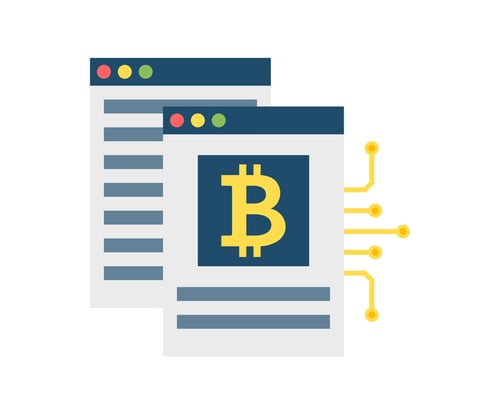This is how employers will avoid the high costs of hiring the wrong person and job seekers can avoid being overlooked.

Eighty-five percent of job seekers lie on their resume and during the hiring process. Forty-six percent of hires fail in their first 18 months costing companies $10,000 per entry-level workers and $40,000 per manager. And on top of that, 30 percent of job seekers' references are fake.
Hiring is highly flawed. What's the fix?
Blockchain.
Job seekers are being dishonest about their skills, education, experience, and even their references. Blockchain, a time-stamped series of modification-resistant records of data, will be able to verify all of these aspects and will ensure the most capable person gets the job.
Today's smart job seekers have already built robust online personal brands that highlight and showcase their competencies. Blockchain will provide order and trackable metrics that bring greater validity to job seekers' online profiles.
Ultimately, the transparency and verification enabled by blockchain will help employers and recruiters know which job seekers to take seriously and will allow talented job seekers to stand out.
Much like how banks rely on a loan seeker's credit score to make an informed decision about lending, employers will rely on a job seeker's competency score to make an informed decision about hiring.
Using blockchain, employers will hire the most suited talent and workers will be placed in positions that best suit their skills. A win-win.
How will blockchain be used to verify skills?
Arran Stewart, Founder and CVO of Job.com, recently answered this question in my interview with him. He stated, "Job seekers will be invited to upload their resume--to an ecosystem like www.job.com--and invite people they know to verify their skills." The verifier completes the task and the job seeker receives a score.
Then if the job seeker gets hired based on the verified skills, the employer will feed this information back into the ecosystem further elevating the score of the verified skills of the individual.
Just like how timely loan payments impact peoples' credit score, demonstrating skills will impact workers' competency scores.
The verified skill scores will be securely attached to the individual's resume and provided on the blockchain. This provides the individual and future employers an encrypted ledger of the verified skills, education, experiences, and references that an individual possesses.
Stewart is labeling this project as "Equifax for Resumes" where everyone in the labor market is given a "Trustocracy and Meritocracy (TM) score." TM and blockchain will bring more trust, transparency, and efficiency to hiring.
"The process of putting trust and transparency behind a user has so many further positive implications in recruitment and outside of it. This score could be used to rationalize every negative and positive comment ever made about a company on Glassdoor, or go one step further, bring context to the 1 or 5-star rating someone has made in other forums," says Stewart.
In the near future, employers will use blockchain to avoid the high costs of hiring the wrong person. And solely relying on a job seeker's resume or references will soon be old-fashion and ill-advised.
As a Millennial and Generation Z keynote speaker and trainer, I help companies lead, engage, and sell to the emerging generations. If you'd like help solving tough generational challenges inside your organization, click here.





